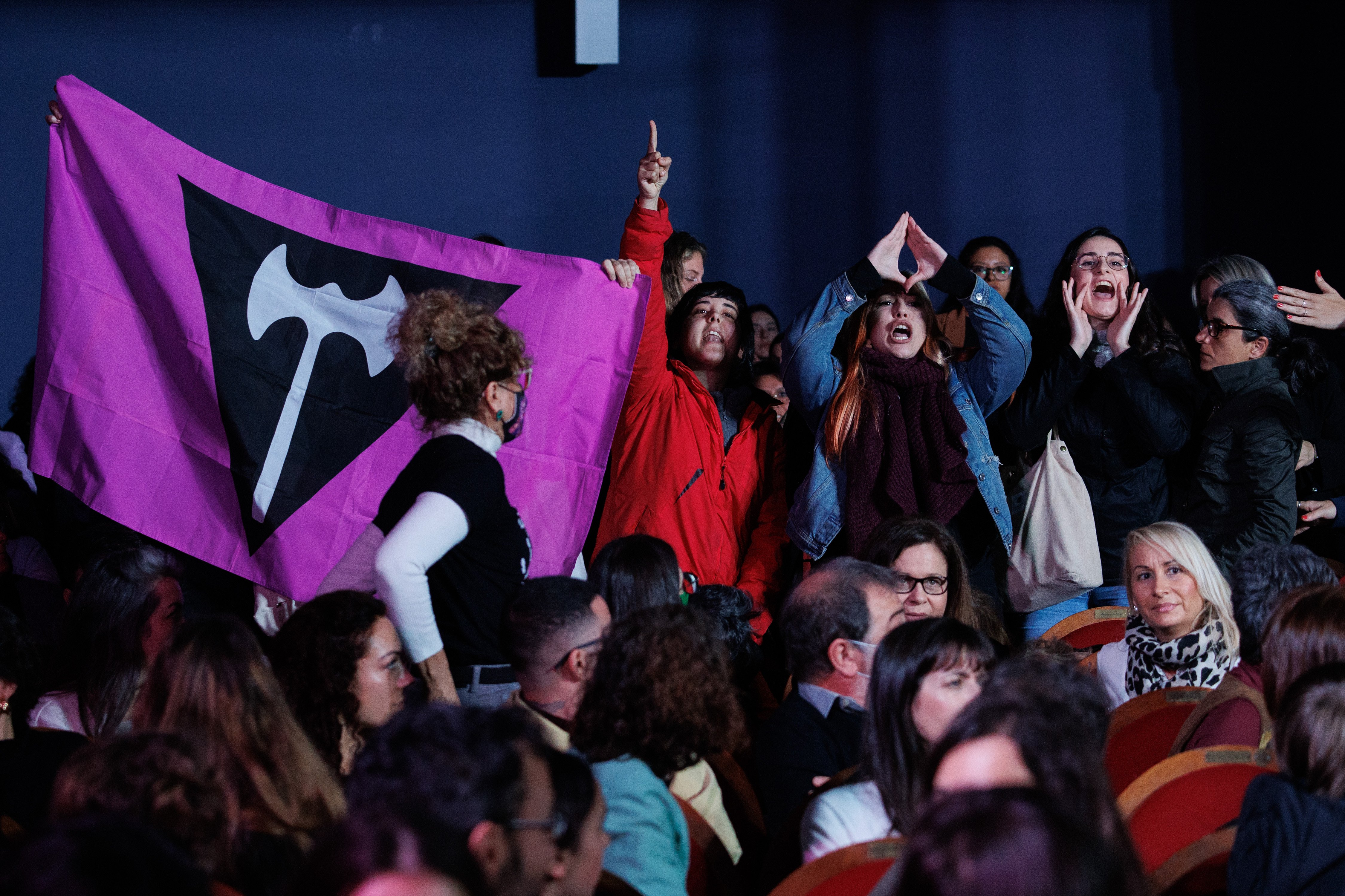Tensions within feminism made their presence felt in Madrid just minutes before this afternoon's main International Women's Day demonstration was due to begin in the Spanish capital. A group of transphobes turned up to heckle an event organized by the equality ministry for March 8th and interrupted the speech of the minister Irene Montero. The reason for their protest was Spain's trans law, recently passed by the Spanish houses of parliament, and which the activists known as TERFs - Trans-Exclusionary Radical Feminists - do not see with good eyes.
"Feminism is not divided, it is parasitized", was the cry in response by one woman attending the event, defending Montero against this group, to which she was referring. This branch of the movement has stong differences with the current majority current of feminism, which the Equality ministry backs. Faced with the heckles of the transphobes, the organizers - and Irene Montero herself - responded by inviting the protesters to take part in the round table which was at the centre of the event. One of the women agreed to this, and started her speaking turn by asking the minister: "What is a woman?"
For the protester, a woman is only a person who is born with a vagina. The young woman who had come to the stage did not deny "the oppression" that trans people suffer, but she regretted that minister Irene Montero "denies the biological reality that women are born with". According to the transphobe, women are oppressed because of the “sex we are born with”, and not because of the gender with which they identify.
Montero pointed out that women - trans or not - suffer more violence than men, and asserted that her "obligation" as minister is to respect people's human rights, which entails respecting the sexual freedom of citizens; and within these parameters comes the possibility that someone born with a penis feels like a woman. "When it is said that trans women are not women, human rights are being violated; that's what equality education is for", said Montero. The minister ended her speech by assuring that the real "threat" women face is the "lack of sexual education, masculinity and patriarchy".
Spanish politics has been filled with debate over the last few months over the hows and wherefores of reforming - or not - the 'Only yes means yes' law of sexual freedom. But within the feminist movement, the debates that generate the most division are those regarding the status of trans people and, above all, how prostitution should be handled. There are feminists who favour its abolition, while another school of thought favours its regulation. Meanwhile, this March 8th, Spain's PSOE - which usually seeks to stand solidly with the progressive wing on International Women's Day - faces not only its differences with Podemos but also the embarassing problem of the 'Tito Berni' corruption scandal, centred on the now-sacked Canary Islands Socialist MP, Juan Bernardo Fuentes, part of a scheme which allegedly plied business people with prostitutes and drugs.

